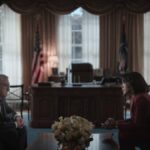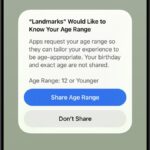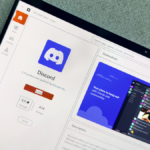Exploring the World of Paranormal Prizes
A recent 2022 survey by YouGov revealed that 39% of individuals in the United States entertain the notion of possessing paranormal abilities. Among those, approximately 25% claim to perceive the auras or emotions of others; 15% report receiving auditory messages from spirits; and roughly 13% believe they can glimpse events from the past or foresee the future.
This serves as a reminder for the nearly 13 million Americans who assert they have extraordinary gifts: an opportunity to gain a significant financial reward is being overlooked. Numerous skeptical organizations globally have collectively placed a staggering $1,408,424 (plus one goat) up for grabs, awaiting those who can convincingly showcase their psychic powers.
The requirements to qualify for these monetary rewards are diverse. For example, the Dutch group Stichting Skepsis is willing to offer $12,000 to practitioners of alternative medicine who can substantiate their effectiveness. If you can demonstrate a “fulfilled Biblical prophecy,” the Fayetteville Freethinkers have a goat ready for you. Whether your skill is foresight, telekinesis, or communication with spirits, there’s likely a reward that fits your talents.
Tracing the Origins of Paranormal Prizes
The inaugural financial incentive for evidence of paranormal phenomena was introduced by Scientific American in 1922. During the era of spiritualism, the publication offered $2,500 for anyone who could produce a “spirit photograph” (an image capturing a ghost) in a controlled environment, as well as $2,500 for demonstrating a “visible psychic manifestation.”
One notable medium of the time, George Valiantine, attempted to claim the prize by creating the illusion of a floating trumpet in a dimly lit room. However, the testing committee, which included the renowned magician Harry Houdini, discovered that Valiantine’s chair was linked to a light in an adjacent room. This light illuminated whenever he left his seat, coinciding with the appearance of the trumpet. Valiantine was ultimately exposed as a fraud, allowing Scientific American to retain its funds.
The most prominent contest for demonstrating psychic abilities is the One Million Dollar Paranormal Challenge, established by the James Randi Educational Foundation. Randi, a magician who became a vocal skeptic, initially announced a $1,000 prize in 1964, which escalated to one million dollars by 1996. From 1964 to 2015, over 1,000 individuals approached the challenge, yet none succeeded in proving their supernatural claims under scientific scrutiny. No remote viewers could view distant locations, no dowsers located hidden items, and no mind readers interpreted thoughts.
The Unintended Consequences of Paranormal Prizes
Contrary to what one might expect, a perfect failure rate does not often prompt individuals to question the existence of psychic abilities. Instead, public failures can sometimes enhance the allure of these powers. This was the case for Uri Geller, who gained popularity in the early 1970s for his alleged talent of bending spoons using his mind.
Though he never pursued Randi’s prize, Geller’s confrontation with Randi on the Tonight Show with Johnny Carson highlighted the difficulties associated with disproving paranormal claims. Carson, with a background in magic, was skeptical of Geller’s assertions and invited him onto his show, presenting him with a set of tests devised in collaboration with Randi.
For an intriguing watch, the segment is worth exploring:
For those unable to watch the 20-minute segment, Carson provided Geller with numerous opportunities to demonstrate his abilities. However, Geller fell short; under Carson’s vigilant eye and without control over the props, he could neither bend a spoon nor identify the contents of a container. Despite this comprehensive display of failure, rather than ending Geller’s career, it had the opposite effect. Geller attributed his inability to perform to a lack of focus, suggesting he might have been subconsciously obstructing himself. Many spectators interpreted Geller’s failure as validation of his authenticity, assuming that if he were merely a magician, he would have succeeded. This failure propelled Geller into popularity on various talk shows, enabling him to perform successfully in less regulated environments, thereby solidifying his stardom.
The Challenge of Disproving Claims
While prominent figures like Uri Geller may be aware of their methods, the 13 million U.S. citizens convinced of their special abilities are likely not engaging in deceit. It’s simply easy to indulge in beliefs surrounding the supernatural. Unusual occurrences, particularly rare events, often lead to interpreting them as evidence of some inexplicable force at play. For instance, if someone thinks of a friend only to receive a text from them simultaneously, it’s understandable to perceive this as a unique connection. However, given that such rare occurrences happen to over 300 individuals in the U.S. daily, there is no one like James Randi or Johnny Carson to conduct controlled experiments to clarify these moments as mere coincidences, often disregarding the countless times a person thinks of someone without receiving immediate communication.
Yet, perhaps there truly are extraordinary abilities to discover. For anyone with such talents, a prize of over one million dollars and a goat remains available for the right contender to claim.












